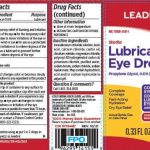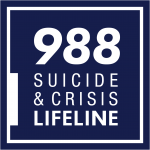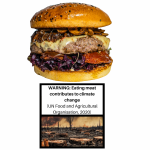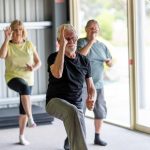
Cardinal Health, Inc. is voluntarily recalling certain LEADER brand eyedrops because they may cause eye infections. The U.S. Food and Drug Administration informed the Dublin, Ohio, company that agency investigators found unsanitary conditions in its manufacturing facility. Tests of critical drug production areas of the facility were positive for bacteria. The drops were supplied by Velocity Pharma, LLC. Potential eye infections caused by bacteria could lead to partial vision loss or blindness, Cardinal Health warned in a recall notice from the FDA. These products were meant to be sterile. Contaminated ophthalmic drug products pose a particular risk of harm because products applied to the eyes bypass some of the body’s natural defenses. Cardinal Health has received reports of three adverse events related to these listed products and have shared this information with its supplier, the recall notice said. Several products are part of the recall. They are: LEADER Eye Irritation Relief, NDC code 70000-0087-1 LEADER Dry Eye Relief, NDC code 70000-0089-1 LEADER Lubricant Eye Drops, NDC code 70000-0090-1 LEADER Lubricant Eye Drops, NDC codes 70000-0090-2 (pack of 2) and 70000-0090-1 (bottle) LEADER Dry Eye Relief, NDC code 70000-0088-1 LEADER Lubricant Eye Drops, NDC code 70000-0587-1 These eyedrops are sold over the counter for temporary relief of burning and irritation due to dryness, to protect against further irritation and to relieve redness. They were sent to… read on > read on >


















